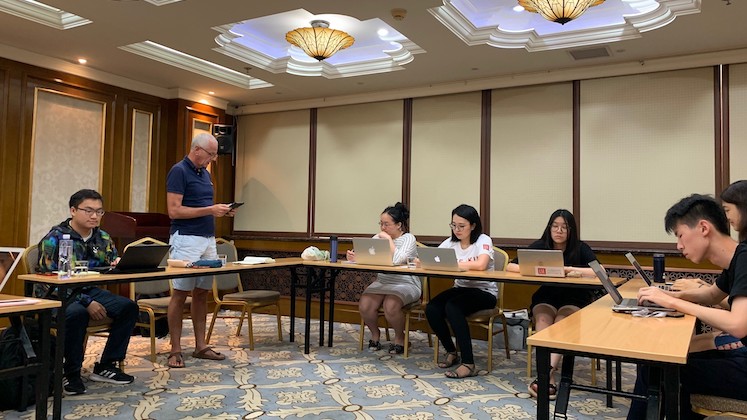
Photo: "The best part of the course is the moot court, because it involved group work and gave me lots of opportunities to talk to my classmates. The sessions were so interactive, I was able learn from everyone." Zeng Xuan, Foreign and Commonwealth Office, China
The objective of this course is to provide students with a good understanding of Chinese law, focusing on business and commercial law, including how this law is made, implemented and interpreted in China, and the forces behind its development, from both international and domestic perspectives. The course is designed for participants who are new to the topic, as well as those with some prior knowledge.
The course will open with an overview of the concept and principle of the law in China, and the evolution of this system since 1978, as well as a general introduction to the various forces that are shaping the legal system in contemporary China.
The course will then provide a systematic survey on law-making, interpretation and implementation of law in China, in an attempt to demonstrate the interaction between the CCP, parliament, the government, and the judiciary in China, as well as the central-local relationships, with a focus on the undergoing judicial reform in China.
Thirdly, the course will investigate WTO and China’s foreign trade, legal regimes of FDL and ODL, business organization law, IPR protection in China, as well as China’s efforts of internationalizing RMB, free trade zone trials, and rural land reform. The course shall introduce the evolution of those institutions in China and explain the reasons behind the changes, as well as their impact on the rule of law in China.
Finally, the course will look at whether China can eventually emerge as a full-market-economy and rule-of-law country with a piece-meal, gradualist approach.
A key feature of the course will be the use of real life legal examples and case studies involving large foreign companies with investments and business in China, such as the Hong Kong abode case, the Qi Yuling case, the Luoyang seed case, the rare earth WTO case between China and US & Japan & EU, Baori golf club case, the Unicom case, Apple vs Proview case and the New Balance case, etc. Students are expected to participate in discussion on these cases, considering them in the context of legal practices in other jurisdictions.
Most of the case discussion will be organized as a moot court, so as to give students a flavour of the court or arbitration room in China. Students will choose to represent various parties or be judges (arbitrators) in the moot court practices. Every student will at least have one opportunity to participate in the moot court practices.
Click here to see the full course outline